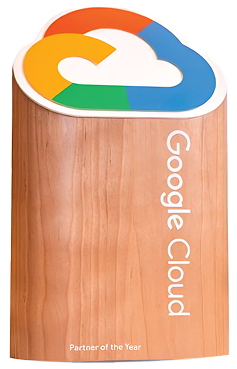In 2010, Forbes and Fierce BiotechIT (a clinical data journal) reported the use of cloud computing for large amounts of clinical data as well as data analyses on drug development. IT professionals couldn’t be more thrilled with cloud technology within medical fields, stating that its agility and scalability enhance information technology and business processing.
George Miller, author of Eli Lilly uses cloud computing for clinical data analysis, expands on the link between IT work within the cloud and large medical companies.
“That’s where IT meets the antithetical requirement of simultaneously sharing and protecting sensitive data in a highly regulated environment. It’s the intersection of trust and technology, where big pharma must reign in its protective instincts while guiding information technologists out of the ordered realm of bytes and into the convoluted and complex layering of a regulatory system whose origins precede computing capability.”
Cloud computing is redefining business in general. Communication between IT professionals and large medical companies is improving ease of use within the cloud. Scalability isn’t just about how big the cloud can get, but more about how often the cloud is used. Businesses are taking advantage of tighter control over their cloud services. The business operating model relating to IT and cloud computing is more selective; using cloud services only when needed. As Forbes states in their article, Cloud Computing’s Great Promise, “The result is a far more agile and cost-effective IT.”
Pharmaceutical companies can also be selective, despite large amounts of data collected after the development of new products. A conference in Virginia focusing on Clinical Data Management Innovations, sponsored by Q1 Productions, devotes two full days to sharing and open dialogue between workers and top leaders in their fields. Industry leaders are still looking to find more structured strategies for high volumes of clinical data. As data increases, cloud computing must adapt, creating the need for more streamlined operations. This is set to cause greater research collaboration and innovation across the board.
If security is still an issue among personal cloud services, how is clinical data management combating security issues of their own?
Lee Bendekgey, from Healthcare IT News, explains that “by using a cloud-based service with an appropriate security and compliance infrastructure, an organization can significantly reduce its compliance risk.” The US Department of Health and Human Services requires a posted list of breaches of unsecured protected data of five hundred individuals or more. Also, organizations are required to provide brief summaries of the cases as well as those that have been investigated. Due to the strict regulations for reporting breaches, organizations are incentivized to boost systems and processes to reduce risks.
Although breaches have occurred, 66% of these breaches were due to theft or loss of equipment within the organization. Despite our beliefs to quickly blame cloud technology, more breaches resulted from loss or theft of a laptop or flash drive. Only 8% of breach incidents occurred through hacking. Bendekgey suggests, “implementation of IT systems that enable secure sharing of information without the need to transport it on a computer or storage media will go a long way toward eliminating the majority of large [HIPAA] breaches.”
Cloud computing enforces safeguards, such as encryption, and cloud technology is only becoming more advanced. Cloud computing is cost-effective and more easily monitored by executive officers and auditors. Clinical data is strengthened by cloud technology through: increased communication with IT, lowered data collection/management costs and augmented compliance risk management.
– by Brianna


Leave A Comment